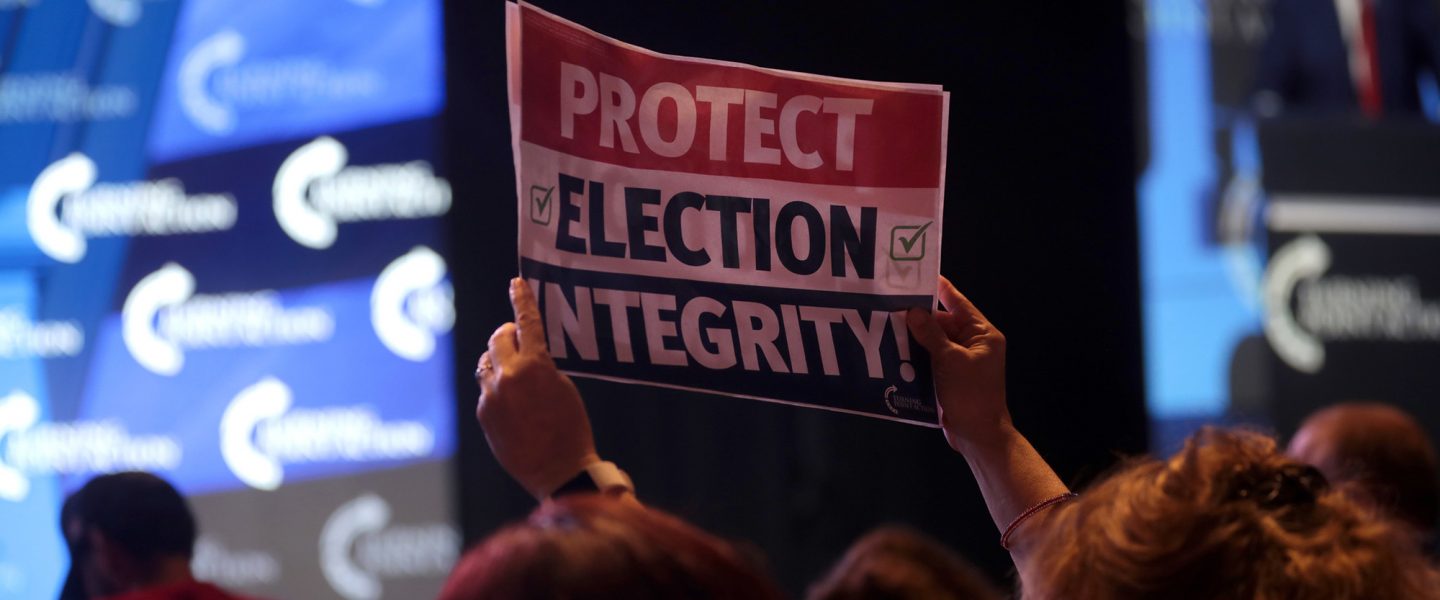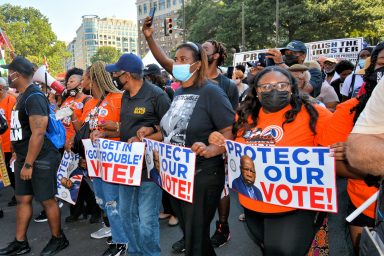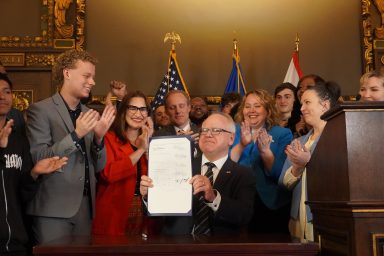Election integrity experts issued a report Wednesday proposing two dozen ways by which elections can be fixed and US democracy salvaged; however, some of these recommendations reflect a certain level of naiveté.
|
Listen To This Story
|
A group of prominent election integrity experts on Wednesday issued a stark warning to the United States: The country’s electoral process and its democracy are “under great stress.”
In addition to sounding the alarm, they also proposed two dozen ways in which elections can be fixed and US democracy salvaged. However, some of these recommendations reflect a certain level of naiveté.
There might have been a time when the suggested solutions would have helped. However, now that one political party is veering toward authoritarianism and millions of its supporters live in a world untethered from reality, some of these fixes seem utopian.
“Over the last two decades, hyperpolarized politics and very close elections have led to fights over election rules and controversy over the administration of U.S. elections,” said the report, which was compiled by a group calling itself the “Ad Hoc Committee for 2024 Election Fairness and Legitimacy.”
The group was put together and chaired by Rick Hasen, a prominent election law expert who teaches at the UCLA law school. It consists of two dozen academics, representatives of civil rights groups and think tanks, and voting technology experts.
In their report, they correctly identified the greatest threat to US democracy: Donald Trump.
The document notes that the former president “repeatedly made false and unsubstantiated claims against the integrity of the electoral process.
“After losing the election, Trump and his allies engaged in an unprecedented series of maneuvers in an unsuccessful attempt to overturn the 2020 U.S. presidential results,” the document states. “All reliable evidence indicates that the election was conducted without widespread fraud or irregularities under difficult circumstances.”
While the experts correctly note that this “crisis of confidence flourishes today more on the right side of the political spectrum,” it also states that “it is easy to see how policies or events in the 2024 election cycle could lead to a crisis in confidence on the left, even if the 2024 elections are conducted fairly.”
That’s probably the kind of thing academics feel they have to write in such a report, but, while there was ample evidence of Trump’s authoritarian aspirations, there are no indications that a similar coup would be staged from the left.
And, by identifying the challenge of how to salvage a democracy when tens of millions of people have been brainwashed to no longer believe in it, the authors of the document also inadvertently demonstrate why many of their suggested fixes won’t work.
For example, take this recommendation: “States should reduce opportunities for baseless conspiracy theories by promoting rapid determination of election results while ensuring ample and robust voting opportunities for all eligible voters.”
That sounds great. However, lots of states are intentionally doing the opposite of that precisely because they don’t want to offer “ample and robust voting opportunities for all eligible voters.” That recommendation defeats the entire point of the voter suppression laws so many GOP-led states have been passing in recent years.
Or this gem: “Losers of fair elections should quickly accept election results.”
That would be nice, and it sounds easy enough, but we wouldn’t be in this situation if election losers like Trump would simply concede and move on.
And on and on it goes like this.
There are recommendations for election administrators, politicians, the media, social media platforms, and stakeholders in the election technology sector, and all of them are worth checking out.
It is an admirable effort to convene these experts and have them put together this document. But these recommendations would only work if all parties were acting in good faith and had an actual interest in fixing elections and not rigging them, and in salvaging democracy instead of undermining it.
Sadly, that’s just not the case.
That doesn’t mean that well-meaning people shouldn’t keep trying, of course. They play a crucial role in alerting the general public to these threats. However, it is also important to be realistic about what can be done and how it can be achieved.
In this case, that means lots of lawsuits, getting pro-democracy initiatives on the ballot where they have proven to be popular, and making sure that anti-democracy candidates at every level of government are defeated.
And then, once reasonable people are back in charge, they can give these recommendations another look.




